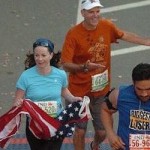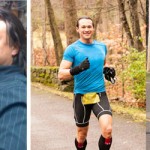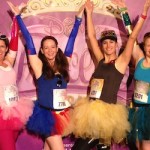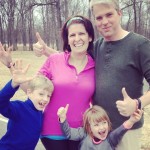
Relaxing with an issue of People magazine spring 2008, I read what must have been a 20- to 30-word brief about a new book, Gaining: The Truth About Life After Eating Disorders by Aimee Liu. The blurb stated that those who had previously dealt with the syndrome often engaged in “punishing exercise” and were typically workaholics with few or no children.
I burst into tears.
The book’s author, herself a recovered anorexic, had written a comprehensive examination of life post-eating disorder, particularly that of “restricting anorexics” (those who limit their food intake as much as they can, sometimes eating nothing for days), in order to understand how they sought, found and maintained a healthy balance after conquering the disease. I bought and devoured the book.
My emotional reaction was probably due to my confrontation there and then with a fiction I had perpetuated for myself since I was 19, when I emerged from a six-week, in-patient eating disorders program in South Dakota: I was “recovered,” or perhaps even “cured,” of my disease. But maybe I wasn’t over the whole thing after all. Maybe I was still living out those inclinations, just in different ways.
Reading this book, an incredibly insightful mix of memoir, interviews and research summary, I finally understood that an eating disorder isn’t something one suffers from and gets over; it’s a feature of a personality that’s flared up in reaction to a combination of nature, environment and emotional trauma. After the flare up is “contained” through treatment and ongoing counseling (a best-case scenario that I’ve been fortunate enough to experience), this foundational personality attribute is still part of the individual.
Liu quotes an eating disorders researcher, Sheila Reindl, who characterizes the phenomenon this way:
Recovery is like a big old house. … The anorexic or the bulimic is always going to live there. People sometimes think, I can evict her, I can get rid of that. But you don’t develop an eating disorder for no good reason. It’s a profound experience. So how could you wipe out that whole piece of your history? I prefer to think of it this way. [The anorexic] used to rule the house in a kind of tyranny. She was in charge of the kitchen, in charge of everything. Now she still gets to live there and she may still have some of those old fears and vulnerabilities, but she’s got only one room in the house and has to make way for more and more occupants as time passes (p. 125).
It’s been five years since I read Gaining, and its insight has become part of my psychological DNA. I see that running was my way of inviting a new occupant into the house of my psyche, someone to counter the old, dieting tyrant.
When I was thin from restricting food, I was tired, weak, vulnerable and depleted. Now that I am fit, I’m still exhibiting that controlling and disciplined attribute of my personality, but in contrast, I feel energized, strong and confident.
Let me be clear: I don’t run and work out just because of this need for control. I exercise because I enjoy the act of it, I sleep better, I have more energy throughout the day, I’m less stressed and I suffer fewer migraines than I used to. And sometimes I go on the most beautiful, peaceful, euphoric outings. Any one of these benefits is reason enough to work out; in combination they can be addictive.
But I understand that part of the attraction to this way of life is rooted in a personality that wants to take charge of myself, my health and my body as a means of feeling that I have control over what happens to me in my life: I am not a leaf in the wind, damn it! Watch! I can run 20 miles!
Of course, not every athlete – runner, cyclist, dancer, yogini, general fitness buff – is fighting a control issue in this way, and there may be “healthier” motivations for the discipline such enterprises require to maintain year after year.
But I am who I am, and I prefer Strong Stacey to Starving Stacey. There’s more happiness here, more acceptance, more confidence and more fulfillment. A wider, more happily experienced life has opened up for me on the running trail. I understand and accept that I don’t run because I’m “sick.” I run because I am myself, and that’s what a healthy Stacey does.












